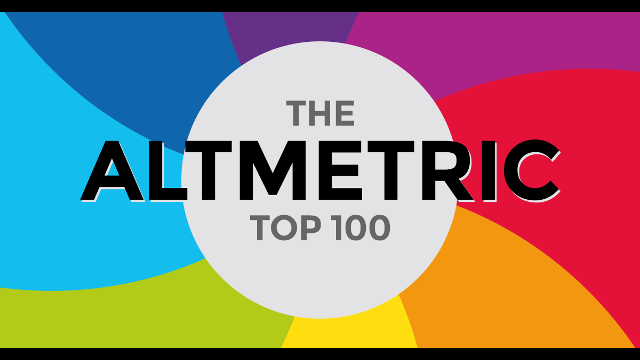
Open access to scholarly knowledge in the digital era (chapter 1.2): Scholarly communications and social justice
This article is chapter 1.2 in section 1 of a series of articles summarising the book Reassembling Scholarly Communications: Histories, Infrastructures, and Global Politics of Open Access.
In this second chapter of the colonial influences section, Charlotte Roh, Harrison W. Inefuku, and Emily Drabinski show that scholarly research is complicit in the production of social inequalities that academic universities have perpetuated across the globe. They state while many publishing institutions have recently begun to pay more attention to the “problem” of diversity, this attention has not resulted in the kind of fundamental change that would result in the redistribution of opportunity and access.
Because the kind of change called for by the current system requires deep-rooted, radical shifts in how knowledge is produced, how it is valued, and whose voices are authorized to speak in the academy, Roh and colleagues argue that revolution rather than progression is needed.
What does it mean to create a new environment, a new ecosystem of scholarly communication? While open access publishing advances equitable access to reading scholarly work, it does not automatically reverse the biases and norms of scholarship itself. Roh and colleagues warn that without self-reflection and organized efforts to shift power in publishing, open access efforts risk simply replicating biases and injustices endemic to the traditional scholarly communication system.
They advise that social justice in scholarly communications requires more than the provision of access to materials through the open web, and more than representation. It requires true global participation – from authorship, to the tools and means of production, and to the indexing of and access to the end product. It requires reckoning with the labor conditions of workers whose work facilitates the scholarly conversation. Beyond the tasks described here, an ethical scholarly communications practice would also engage in fights for the wages and working conditions of all laborers along the production chain. An ethical scholarly communications practice would consider both the Nigerian scholar who is recognized throughout Africa, as well as the environmental and labor practices around the metals that create our publishing tools.
Scholarly communications is a series of material practices that Roh and colleagues propose could be constructed otherwise – rooted in equity and justice rather than colonization and dominance. They state that sustaining that radical vision and advancing toward it are critical to an open access movement that can transform the world.
Rooted in colonial privilege
Western scholarly publishing began as the correspondence of gentlemen who had the leisure and wealth to indulge their intellectual curiosities, whose letters evolved into the journals and monographs that are now seen as traditional and inevitable. In order to access academic newsletters and journals, scholars paid membership fees to scholarly societies or subscribed to lending libraries.
As Western colonialism expanded, universities and their presses did too. So Roh and colleagues state that it is no coincidence that the largest, most lucrative, and most influential academic publishers are headquartered in the Global North (Springer in Germany, Wiley in the United States). They advise that the power to shape scholarly communications on a global scale – facilitated by the legacy of colonial extraction and the imposition of systems and knowledge from those in power – continues to this day.
Regardless of the subject matter, the academic publishing system has produced a scholarly record dominated by scholarship from the Global North. For example, a 2013 study of economics papers found that only 1.5 percent of economics articles in top-tier journals were about countries other than the United States, while only about three papers about the poorest 20 countries were published every two years.
While many point to the impact of the digital divide, Roh and colleagues contend that contributions to the scholarly record from scholars in the Global South are hampered by more than unequal access to digital technologies. Systemic obstacles include the perceived importance of global and local knowledge, language, and negative perceptions of research from the Global South.
When selecting research topics, scholars from South America, Africa, and Asia often have to choose between focusing their research on a topic of local interest or choosing topics that are more likely to be published in the top journals in their field. Journals with high impact factors have editorial boards composed primarily of researchers in North America and Western Europe, which means the scope of these journals is evaluated by the criteria of the Global North. When scholars from other parts of the world choose to research topics of local importance, whether poverty, tropical diseases, or local folklore, they risk relegation to the periphery of the scholarly record. This marginalization of non-Western topics spans disciplines.
These choices for publication relevance have real impact on lives. For example, the Zika virus was first discovered in 1947 but largely ignored by those outside the equatorial belt – including scholarly publications – until it threatened the United States in 2015–2016.
The reliance on Western academic English language and its norms excludes valuable content that does not fit its container, and shapes what counts as legitimate research, from the questions that can be asked to how they can be answered. Researchers have to make a choice between writing in a language that will be accepted by journals published in the Global North or using their local language. Because English is the lingua franca of research, scholars must produce scholarship in English if they wish to be published in the “top” international journals. Not only are standard research criteria imposed, but also standard genre models, writing parameters, and publishing guidelines. Lack of English fluency can also shape a reviewer’s perception of submissions, and may be used as a shortcut to judge the overall quality of the paper.
The unfair predatory publishing label
Scholarship from the Global South is too readily dismissed by researchers in the Global North, due to a publishing system whose standards of quality have been developed for academics in the Global North. Roh and colleagues alert that Jeffrey Beall, who until recently maintained a list of publishers and journals he considers predatory, has been criticized for unfairly labeling publishers from developing countries predatory.
They state that in using the term “predatory publishers” to describe publishers in the Global South, Beall tainted the publishers with a conceit of ill-intent, foreclosing the possibility of developmental or capacity issues, rather than examining the problematic capitalist infrastructure of traditional commercial publishing that asks scholars to give away their intellectual property and to pay for the privilege. Roh and colleagues state that Beall’s inconsistent, and at times factually incorrect, criteria has revealed the fallacy of having a checklist that failed to consider context. The fallout from Beall’s blacklist goes on as the academic community continues to refer to its principles and conclusions to educate and make decisions on the legitimacy of publications.
Roh and colleagues argue that the importance of a more nuanced and contextual approach to publication, as well as an understanding of access to the means of production rather than simply the output, cannot be overstated. They state that the old adage “don’t judge a book by its cover” takes on new meaning on the internet, where physical containers and formats have even less relevance and content is – or rather should be – king.
Replicating representation: race, ethnicity, and gender
In addition to geographical and linguistic biases, Roh and colleagues advise that there are also troubling gender gaps in publishing output. Although gender representation has improved in the last 20 years to include more women across all areas of study, authorship is still shockingly imbalanced, particularly for single and lead-authored publications. Women are even under-represented in the peer review process.
While editors may be aware of the gender gap in authorship and peer review, Roh and colleagues state that it is important to point out that this imbalance exists within the scholarly publishing industry as well. Publishing professionals are 60 percent female, but at the highest levels women represent less than a third of CEOs and fewer than one in five board chairs. There is also a gender pay gap across the industry. This is attributed to the differing roles men and women play in publishing institutions, but it also reinforces the reality that systemic injustices exist in publishing, too.
Roh and colleagues argue that it is clear that gender biases exist at every level of publishing, alongside other biases in representation, including race, ethnicity, class, language, national origin, and ability. They state that the academic publishing industry is, to put it bluntly, painfully white, much like the rest of the publishing industry. To more directly confront these demographics and the resulting biases, Roh and colleagues recommend disrupting the composition of editorial boards and the selection of reviewers.
This lack of representation affects not only the diversity of books and other publications that are produced and made available, but individuals, whose careers are at stake because publication is central to tenure and promotion. Lack of publication causes an erasure of voices from our academic institutions, our scholarly record, and our culture and knowledge at large.
Inequalities in production
Roh and colleagues contend that the transformation to open access publishing will fall short unless the fundamental power imbalance issues of race, gender, national origin, and language are addressed.
They advise that understanding scholarly communication as a material practice can help identify points of potential leverage and resistance. Scholarly communication requires the input of many forms of labor, from the inception of a research project to the dissemination of findings and analysis. This work includes defining the scope of a journal, soliciting and selecting articles, conducting the sometimes many rounds of peer review necessary to make an article ready to publish, and the production tasks of copyediting, layout, proofreading, and the task of ensuring that all metadata are correct.
In addition, scholars must read, research and write in the first place, generating the text upon which all this work is applied. Roh and colleagues alert that some of this work – assigning digital object identifiers (DOIs), formatting text, and so forth – is invisible to scholars, who are rarely asked to perform it. In turn, the work of research and writing is often understood not as labor, but as a calling higher than the maintenance work that sustains the work of scholarship. But regardless of the affective relationship scholars have to the material aspects of scholarly communication, this work exists and must be remunerated.
Roh and colleagues reveal that unlike the research, writing, reviewing, and editing that are largely dominated by white men from the Global North, production work is a race-to-the-bottom sector as companies outsource the dotting of i’s and the crossing of t’s to the cheapest, most disposable workers. Paid work in scholarly communications continues to be available, but at increasingly lower rates, disadvantaging workers globally. In contrast, for scholars in the academy, the economic structure on the individual level remains much the same as it has. Their labor is paid by external sources, either their university salaries or through grants. This is true not only for authors, but for editors and reviewers as well.
While this economy works for scholars located at centers of power, Roh and colleagues argue that it disadvantages those who work outside of them, including scholars who live and work in the Global South, write from nondominant race, gender, or class perspectives, or who are part of the growing academic “precariat,” some of the 50 percent of college and university professors who teach without stable employment and for whom the work of scholarship cannot be expected to lead to the tenure and promotion that can make volunteer work on journals make sense as a use of professional time.
The challenge of developing open access models that compensate knowledge workers drives much of the conversation around this transformation of scholarly communications. Inequities in that labor are unevenly distributed. The piecework of production is increasingly outsourced to workers in other parts of the world, who watch their pay plummet as profits are transferred to corporate publishers. Meaningful resistance to dominant forms of scholarly publishing relies on making connections between workers who are disenfranchised at every level of this process. Seeing links between the scholar whose line of inquiry is insufficiently white or Western to be published in top journals and the Indian production worker impoverished by those same systems can lead to productive points of solidarity and shared concern.
Next part (chapter 1.3): A locally-driven “library as a publisher” service for Africa.
Article source: This article is an edited summary of Chapter 21 of the book Reassembling scholarly communications: Histories, infrastructures, and global politics of Open Access2 which has been published by MIT Press under a CC BY 4.0 Creative Commons license.
Article license: This article is published under a CC BY 4.0 Creative Commons license.
References and notes:
- Roh, C., Inefuku, H.W., & Drabinski, E. (2020). Scholarly Communications and Social Justice. In Eve, M. P., & Gray, J. (Eds.) Reassembling scholarly communications: Histories, infrastructures, and global politics of Open Access. MIT Press. ↩
- Eve, M. P., & Gray, J. (Eds.) (2020). Reassembling scholarly communications: Histories, infrastructures, and global politics of Open Access. MIT Press. ↩
Also published on Medium.





